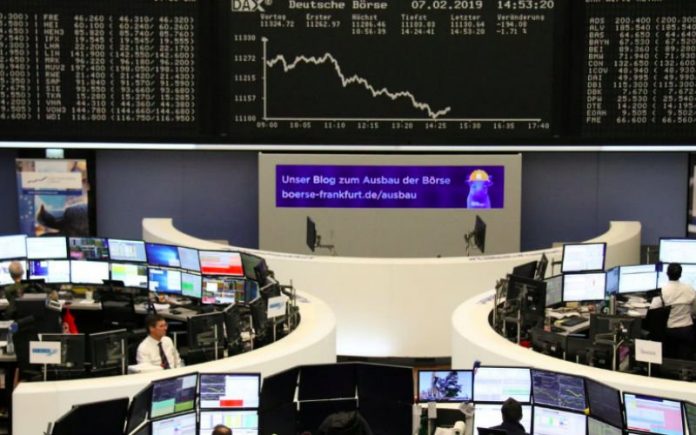
FRANKFURT: Germany’s main stock index reached a record high on Monday, buoyed by a pandemic recovery package agreed in the US and Britain’s Brexit deal with the EU.
Having been closed since Dec 23, the blue-chip DAX index bounced 1.7%, reaching 13,819 points at the open, topping the previous high set in February before the coronavirus pandemic forced Europe into lockdown.
The index has now pared some of its gains to 13,791 points, a rise of 1.5%.
The jump came after US President Donald Trump signed a US$900 billion stimulus bill late Sunday, averting a government shutdown and removing considerable uncertainty for the world’s largest economy.
The US leader had previously refused to sign the relief package, arguing that it included wasteful spending.
On Dec 24, Britain and the European Union agreed a post-Brexit deal that ended the potentially destructive possibility of its disorderly exit from the bloc.
The Brexit deal and the US aid package were pushing the DAX to “a new high”, Jochen Stanzl, an analyst at CMC Markets, said.
The market is “breathing a sigh of relief” after the Brexit deal, independent analyst Timo Emden added.
Germany began rolling out its first Covid-19 vaccinations on Sunday, but some delays were reported and production capacity remains limited.
“For the markets, it remains crucial to get Covid-19 under control as soon as possible,” Emden said.
The DAX’s previous high was 13,795 points in February, but it plunged to 8,255 points in March as the pandemic shutdowns battered Europe’s economy.
Markets recovered as restrictions on the economy were lifted in the summer and after central banks pumped billions in monetary stimulus into the economy, including US$2.3 trillion by the European Central Bank.



